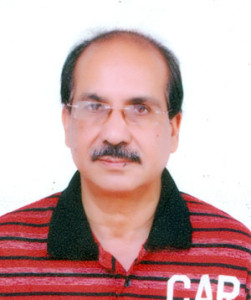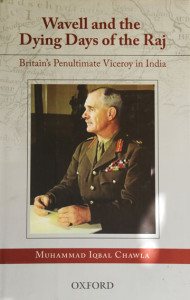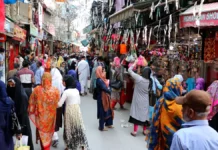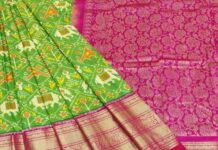
For Professor Dr Muhammad Iqbal Chawla 67 years are not enough to erase the pangs of Partition. Or, to brood over the what/ifs of history. Neither to rewrite an era that was swathed in blood and hatred. Six decades do not suffice to put back on pedestal a Governor General who has been near-obliterated by his suave and charming successor.
In these 67 years, Dr Chawla, Chairman, Department of History and Pakistan Studies, University of Punjab (Lahore), has not forgotten the role of Lord Archibald Wavell who served as India’s Governor General between October 1943 to March 1947. Neither has Dr Chawla forgiven history for denying Lord Wavell his rightful place in the annals of shackle-breaking-from-British stories.
It is for Lord Wavell that Dr Chawla hunched over reams of paper to write a treatise on Britain’s penultimate Viceroy in India. In Wavell and the Dying Days of the Raj, a 265-page hardback book, Dr Chawla delves into Wavell’s Breakdown Plan. “The main point of my book is that though Wavell was not in favor of India’s division into two countries, he, however, was strongly in favor of the minority rights in India,” says Dr Chawla.
Lord Wavell did set the stage for all that transpired in the Mountbatten era. In his book, Dr Chawla covers all the important events and dramatis personae of the movement that eventually led to the partition of India. History would acknowledge Dr Chawla as the first historian to peer so hard into Lord Wavell’s viceroyalty and lend another perspective to the common historical threads. Dr Chawla calls it “a grave historical oversight which I try to correct”.
 Dr Chawla has never been to India, but it was in the blood-soaked land of Jullundhur that the book – in a way – was born. “Within the vast arena of historical research, my area of interest, the Pakistan Movement, especially its conclusive phase from the Lahore Resolution of 1940 onwards, was decided by what my elders underwent in 1947. My parents and most of the members of their extended family resided in Jullundhur. Their journey from Jullundhur to the newly-emerged Pakistan’s borders was a journey through the fires and ravages of hell.
Dr Chawla has never been to India, but it was in the blood-soaked land of Jullundhur that the book – in a way – was born. “Within the vast arena of historical research, my area of interest, the Pakistan Movement, especially its conclusive phase from the Lahore Resolution of 1940 onwards, was decided by what my elders underwent in 1947. My parents and most of the members of their extended family resided in Jullundhur. Their journey from Jullundhur to the newly-emerged Pakistan’s borders was a journey through the fires and ravages of hell.
The stories varied in details but all of them had one theme in common: the unimaginable, daily tales of woe and suffering underlying their trek to Wagah, Burki, Gandasinghwala…It is that generation’s experiences which were transferred to me and became mine in a sense no less than theirs…” says Dr Chawla, his ears still deafened by the unheard shrieks of hapless refugees.
Having studied in Sargodha and with Masters, MPhil and Ph.D degrees from Quaid-i-Azam University, Islamabad, Dr Chawla teaches graduate, post-graduate MPhil and PhD courses and is also the editor of Journal of the Punjab University Historical Society. Wavell and the Dying Days of the Raj won the Government of Pakistan’s Best Book Publication Award. Having worked so hard to restore Lord Wavell’s place in history, Dr Chawla is now working on a book on Lord Mountbatten and the major political actions taken during the last phase of the British control in India.
Dr Chawla knows he cannot rewrite history, but he attempts to straighten facts. And truth.
Preeti Verma Lal






